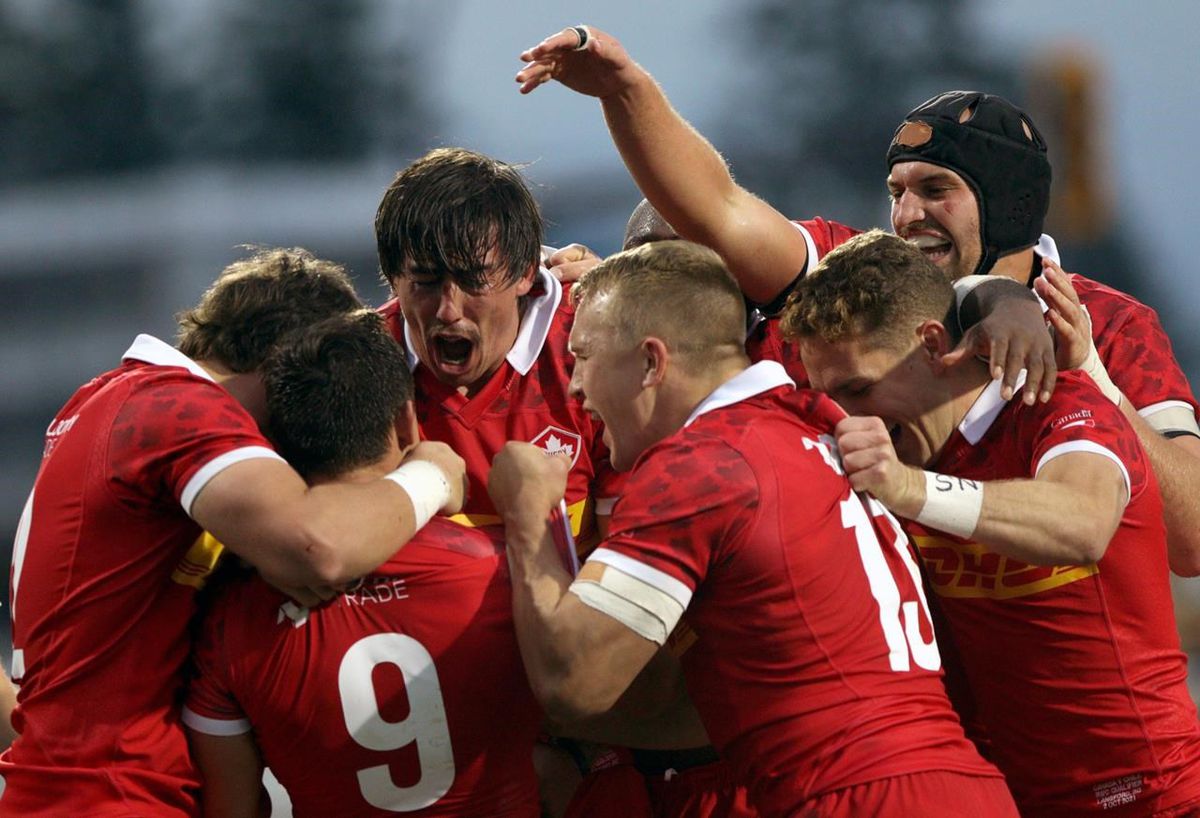An independent review of Rugby Canada’s high-performance programs shows a government agency dealing with fires to fight a long-term strategy and “shocking” athletes about how badly they are being treated when they join the program and feel underestimated and ignored.The Canadian Press
An independent review of Rugby Canada’s high-performance programs paints a damn picture of a dysfunctional organization at odds with its athletes, staff and supporters.
The review shows a government agency too busy fighting fires to have a long-term strategy and “shocking” athletes about how badly they are being treated when they join the high-performance program and feel underestimated and ignored.
“The culture of Rugby Canada and the high-performance program is described as ’empty’ or ‘non-existent’,” the report said. “In this vacuum of culture and leadership, bad behavior pervades all areas of the program. The high-performance program is described by many as unhealthy or unsafe.
“Current players and high-performance program alumni admit that they are not proud to wear the Rugby Canada jersey.”
The review was compiled by Rugby Canada following complaints from former and current members of the Sevens Women’s World Team and the 15-year-old Men’s World Cup qualifiers.
The 17-page report is full of guts.
“Without a strategy to guide it, Rugby Canada appears to be in a constant crisis and overall performance is suffering as a result,” it says.
Rugby Canada is no stranger to reviews, with a history of attracting them after they have not achieved on-field goals – with coaches usually on the sidelines as a consequence.
And for many in a Canadian rugby community that rolls on and off the field due to the pandemic, poor international results, inadequate funding, infighting and irritation in the progress of Rugby Canada or the lack thereof, the negative view of the landscape will not surprise.
But this report pulls a few punches.
“The dysfunction of the system is ultimately a fault of the management,” it says. “Either through acts of ‘commission or commission’, the management of the organization – board, executive, operations and coaches – did not effectively manage the short-term and long-term needs of the high-performance program. The management also failed to create an environment cultivate and nurture that supports and enables truly high performing athletes.
“As it stands at the moment, Rugby Canada’s high-performance athletes, support staff and even coaches are effectively revolting against the program system, leading to a growing organizational dysfunction and a further deterioration of high-performance results.”
It’s never a good sign in a high-performance review when one of their first “key insights” is “Rugby Canada has no high-performance strategy.”
Among the other conclusions:
- Development paths are inconsistently effective;
- Rugby Canada’s “unclear national governance role” limits high-performance program efficiency;
- Rugby Canada’s current organizational structure and resources are not able to support four high-performance teams;
- Inefficiency of corporate and organizational governance exposes Rugby Canada to significant risk;
- Rugby Canada has failed to create a healthy and efficient high-performance culture;
- Athletes do not see the high-performance program as a safe and inclusive environment;
- Rugby Canada’s poor relationship with the Canadian rugby community is a limitation to the high performance program.
Of the 12 most important insights of the report, only one is positive. “Change is possible and many hope to be a part of it.”
The report cites the push-and-pull tension in Rugby Canada between the Sevens and 15s programs that comes with various funding masters (World Rugby for the 15s and Own The Podium for the Sevens) as well as discussion on the need for different Road to the two different forms of play.
The Women’s 15s Team, Canada’s most competitive high-performance unit currently ranked fourth in the world, receives the smallest share of funding.
“Rugby Canada seems to be making decisions about what its high-performance priorities are,” the review said.
The review says Rugby Canada’s high-performance program “is at a critical juncture”, with rivals Tier 2 and 3 nations continuing to “develop and improve.”
“The organization has arrived at this moment due to both on-field and off-field challenges: failure of the men’s 15s team to qualify for the 2023 World Cup, disappointing results at the Tokyo 2020 Olympics and several recent public-facing internal Team Themes “.
Review recommendations include hiring a high-performance director distinguished from coaching roles and establishing a high-performance strategy and clear national governance role. It also cites problems with Rugby Canada based its operations and athletes in Langford, BC, on Vancouver Island.
“Langford is not seen as a positive place to live with it being ‘expensive’ and ‘isolated’ framed,” it says.
In a five-paragraph news release on the report, Rugby Canada President Sally Dennis said: “The results have confirmed the validity of a number of concerns about our high-performing environment and culture that have triggered the review.”
“Some have already been addressed, but the image of the report confirms that significant changes need to be made. We have listened and will now use this report as a springboard for a stronger, better organization.
Rugby Canada will “set in motion an inclusive and collaborative process to address the findings of the report with representation from staff, athletes and key external actors,” she added. “I look forward to coming together as a rugby community to implement transformational change. The results of the report are just the first step in that process.
There is a lot of work to be done for the new CEO, who is not yet hired. But the review concludes Rugby Canada for the better can change.
“The review has revealed some difficult truths about the current state of the program, but the fact remains that there is widespread interest among the Canadian rugby community to put the program on the right track.
“With the right leadership and dedicated action, this community can rally to support the writing of a new positive chapter in the proud history of Rugby Canada.
The review calls on Rugby Canada to “communicate this report fully and transparently, both in response and in respect of the time spent by its players across Canada.”
“This first step is intended to show Rugby Canada’s willingness to take accountability, change its commitment and its commitment to move forward with inclusive intentions. The journey ahead will be difficult and will possibly ‘get worse before it gets better’ “, but with consistent effort, Rugby Canada can chart a brighter future for the high-performance program.
The study was led by a review panel consisting of representatives from Straad Consulting, a Calgary-based management consulting firm, as well as Own The Podium High Performance Consultant Mel Davidson (former Hockey Canada women coach and administrator) and high-performance consultant Mike McGovern.
The panel conducted more than 50 interviews / focus groups, with about 80 individuals participating and received 108 survey responses.
A review committee – consisting of Dennis, Rugby Canada board members David Fortier and Bill Webb, former CEO Allen Vansen, University of Ottawa director of Varsity Athletics Sue Hylland and Penn State professor Robert Boland – was formed “to help with the flow of information. ‘Review panel and ensure it has access to relevant actors and participants while the whole process remains inclusive and independent.
Interim Rugby Canada CEO Jamie Levchuk said the report was written by Straad “with input from the subject matter experts on the rating panel.
“The independent members of the review committee had the opportunity to comment to the review panel on an earlier draft, but all decisions regarding its final content were made by the council,” he added.


Add Comment